The concurrent.futures.Executor.map takes a variable number of iterables from which the function given is called. How should I call it if I have a generator that produces tuples that are normally unpacked in place?
The following doesn't work because each of the generated tuples is given as a different argument to map:
args = ((a, b) for (a, b) in c)
for result in executor.map(f, *args):
pass
Without the generator, the desired arguments to map might look like this:
executor.map(
f,
(i[0] for i in args),
(i[1] for i in args),
...,
(i[N] for i in args),
)

